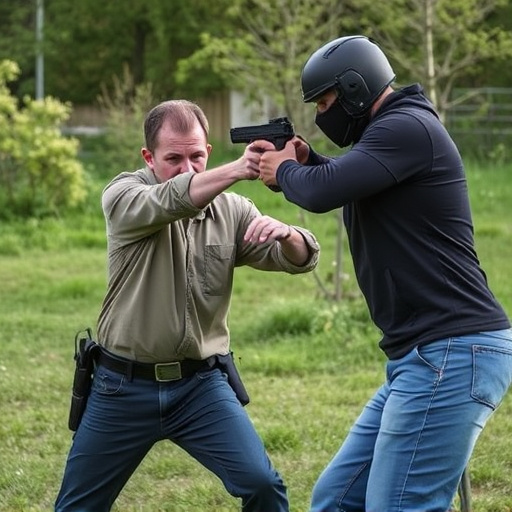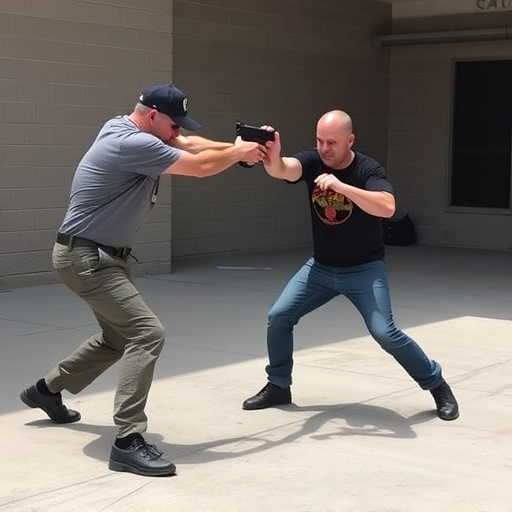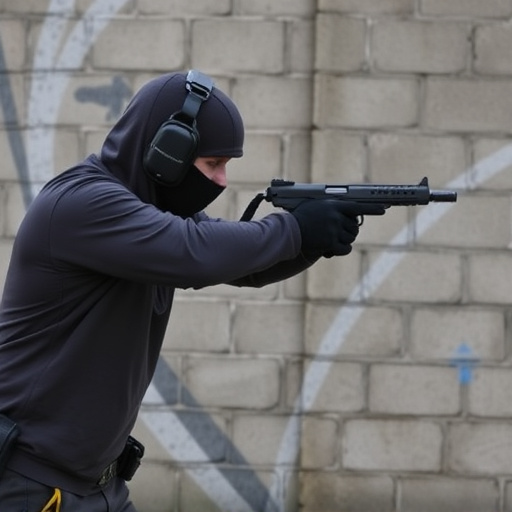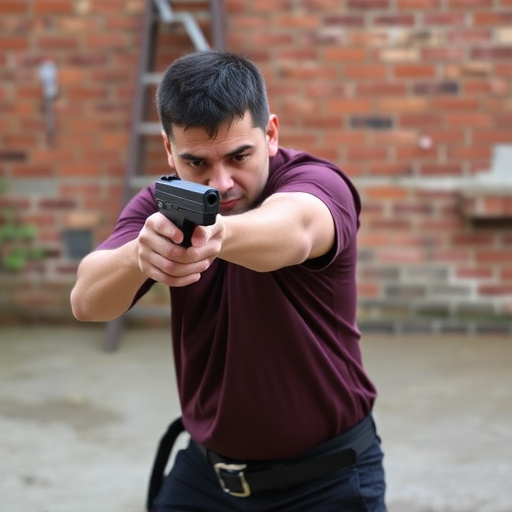In the US, non-lethal self-defense weapons like stun guns and ECDs offer an alternative to firearms, but their legality varies by state. Some states allow open or concealed carry without a permit, while others ban them entirely. It's crucial for citizens to research local regulations, understand permit requirements, and prioritize non-lethal force when carrying these legal self-defense options.
In the United States, non-lethal self-defense weapons like stun guns have gained popularity as an alternative to traditional firearms. However, their legality varies significantly from state to state, creating a complex landscape for citizens seeking personal protection. This article breaks down state-by-state restrictions on stun gun ownership and use, offering insights into how individuals can navigate the legal intricacies involved. Discover the guidelines for legally carrying and utilizing these non-lethal self-defense weapons effectively for personal safety.
- Understanding Non-Lethal Self-Defense Weapons in the US
- State-by-State Legal Restrictions on Stun Guns
- How to Legally Carry and Use a Stun Gun for Self-Defense
Understanding Non-Lethal Self-Defense Weapons in the US

In the United States, non-lethal self-defense weapons, also known as stun guns or electronic control devices (ECDs), are designed to incapacitate an attacker temporarily without causing permanent harm. These tools have gained popularity among individuals seeking legal and effective personal protection. The legal status of these devices varies across states, with some allowing their open carry while others restrict them to concealed carry or outright ban them. Understanding these regulations is crucial for citizens looking to exercise their right to self-defense while adhering to local laws.
Non-lethal self-defense weapons are typically powered by electric current and emit a strong pulse that disrupts muscle control, leading to temporary paralysis. They offer an alternative to traditional firearms for those seeking less lethal options. However, it’s essential to note that these devices should only be used as a last resort and when other means of escape or de-escalation are not feasible. The diversity in state laws requires individuals to research and comply with local regulations to ensure legal possession and use of non-lethal self-defense weapons.
State-by-State Legal Restrictions on Stun Guns

In the United States, the legality of stun guns varies significantly from state to state, with each having its own set of regulations governing non-lethal self-defense weapons. Understanding these restrictions is crucial for individuals seeking to legally protect themselves with a stun gun. Some states have more liberal laws, allowing open carry or permitting stun guns to be stored in vehicles without a permit. For instance, Texas and Arizona allow residents to carry stun guns without a license, making them easily accessible for personal defense.
On the other hand, several states have stringent restrictions on stun guns, often categorizing them as weapons that require permits or registration. Some states, like California and New York, completely ban stun guns, considering them as offensive weapons. Other jurisdictions may restrict their use to specific individuals, such as law enforcement or those with concealed carry permits. As a result, prospective buyers must research the specific laws in their state to ensure compliance and make informed decisions regarding non-lethal self-defense options.
How to Legally Carry and Use a Stun Gun for Self-Defense

Carrying and using a stun gun for self-defense is governed by state laws, making it crucial to understand your rights and responsibilities before purchasing and employing this non-lethal self-defense weapon. Many states allow citizens to legally carry stun guns with a permit or without one, depending on the specific regulations. Researching and understanding these laws is essential to ensure compliance and avoid any legal repercussions.
When using a stun gun, it’s vital to adhere strictly to state guidelines and only deploy it in situations where self-defense is necessary. This may involve training to use the device effectively and safely while respecting the rights and safety of others. Always aim for non-lethal force as a priority, and be prepared to explain your actions should law enforcement question you about the incident.
In the United States, understanding the legal landscape surrounding non-lethal self-defense weapons like stun guns is crucial for responsible citizens seeking to protect themselves. Each state has its own set of regulations, ranging from strict requirements on carrying permits to more lenient policies regarding stun gun ownership. This article has provided a comprehensive overview of these restrictions, enabling folks to make informed decisions about legally carrying and using stun guns for self-defense. By knowing your rights and adhering to local laws, you can ensure that you’re prepared without compromising safety or legality.
